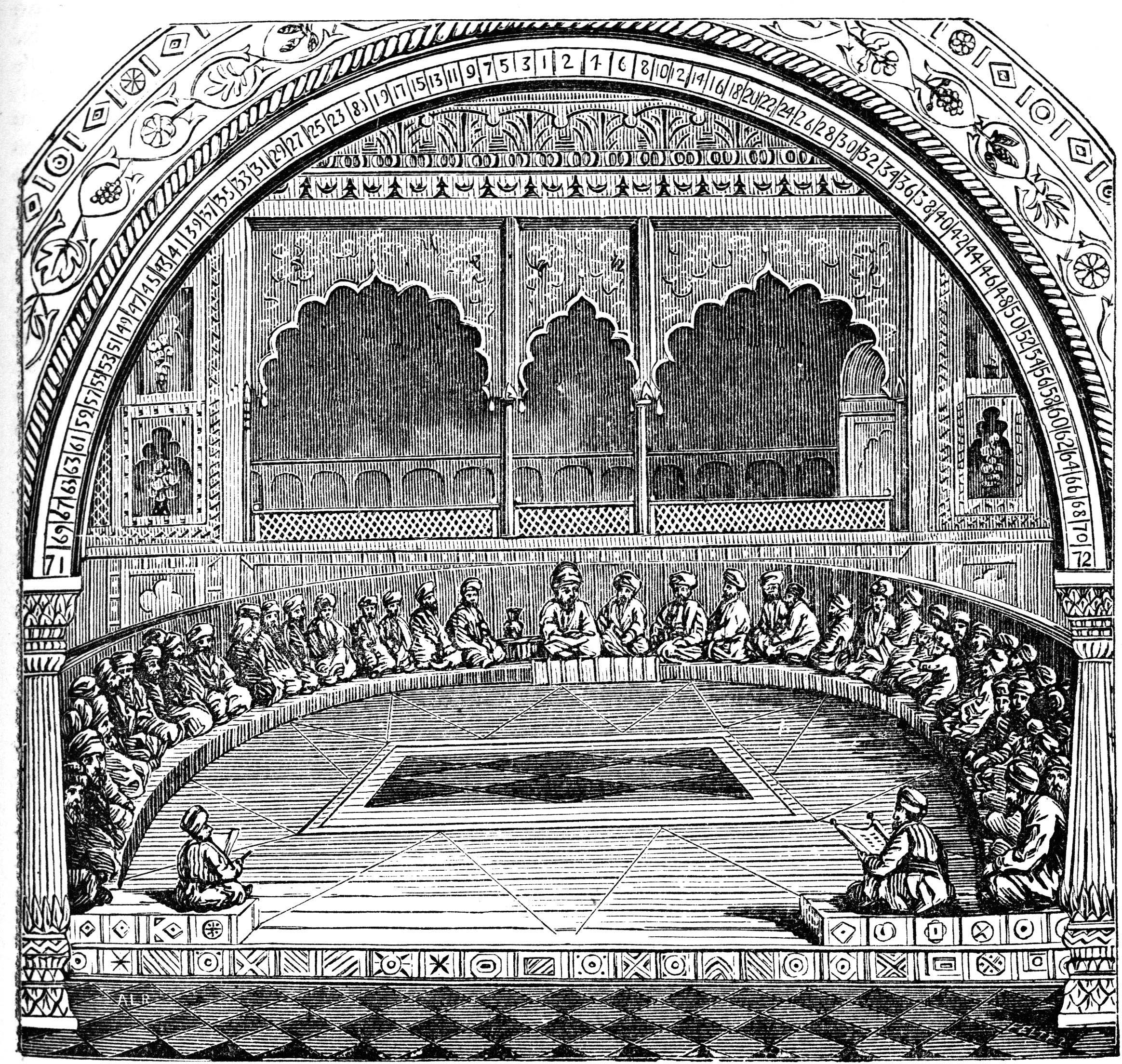… he was healed by the powerful name of Jesus Christ the Nazarene, the man you crucified but whom God raised from the dead.
– Acts 4:10b
Suppose you were arrested and brought before a court of leaders asking how you had healed a lame man. Would you witness Christ?
The Apostle Peter in effect told the very court which convicted Christ, ‘you are the guilty ones.’ The resurrected Lord healed him.
We have heard of this blindness before
The man answered, “Why, this is an amazing thing! You do not know where he comes from, and yet he opened my eyes. We know that God does not listen to sinners, but if anyone is a worshiper of God and does his will, God listens to him. Never since the world began has it been heard that anyone opened the eyes of a man born blind. If this man were not from God, he could do nothing.”
– John 9:30-33
Jesus said, “For judgment I came into this world, that those who do not see may see, and those who see may become blind.” – John 9:39
Some of the Pharisees near him heard these things, and said to him, “Are we also blind?”
Jesus said to them, “If you were blind, you would have no guilt [from sin]; but now that you say, ‘We see,’ your guilt remains.
Blind Leadership
Peter and John had just healed a crippled beggar known to the same authorities who once witnessed a similar powerful miracle, then expelled from the Temple a man blind from birth healed by Jesus. My previous post, the three o’clock prayer service, details this healing recorded in Acts 3. The Apostles face similar retribution as Jesus after healing a lame man in front of many witnesses.
Acts 3:12 And when Peter saw it he addressed the people: “Men of Israel, why do you wonder at this, or why do you stare at us, as though by our own power or piety we have made him walk?
… 17 “And now, brothers, I know that you acted in ignorance, as did also your rulers.
And as they were speaking to the people, the priests and the captain of the temple and the Sadducees came upon them, 2 greatly annoyed because they were teaching the people and proclaiming in Jesus the resurrection from the dead. 3 And they arrested them and put them in custody until the next day, for it was already evening. 4 But many of those who had heard the word believed, and the number of the men came to about five thousand.
Jewish Stratification
During the times of Herod’s Temple, social center of religious life in Jerusalem at that time of Jesus and the Apostles, Temple leaders were esteemed above ordinary men. The political appointment of priests claimed status from traditional Jewish Biblical offices and responsibilities.
- The social world of the priests during the Iron Age and Persian Period was one fraught with concerns about power and status. To be a priest was, at least in terms of public rhetoric, an ascribed, not an achieved status.
Priests
- Throughout the Hebrew Bible, the term priest (kōhēn) is commonly used to refer to an official who was set apart from the rest of the community in order to carry out certain duties associated with worship and sacrifice. As “ministers of the LORD” (Joel 1:9; 2:17), priests functioned as mediators of God’s presence and were responsible for the day-to-day operation of cultic sites, whether the tabernacle, local shrines, or the Temple in Jerusalem.
- Deuteronomy employs the term “Levitical priests” (hakkōhănîm halwiyyim) most likely to underscore the fact that all Levites were qualified to be priests (Deut 17:9, 18; 18:1; 24:8; 27:9).
- The most prominent and persistent controversy regarding the priesthood had to do with whether all Levities could serve as priests or, alternatively, if only certain branches of the Levitical line (the Aaronides or the Zadokites) were qualified for the priestly office.
Scribes
- Outside of their sacrificial duties, priests also oversaw many other aspects of ancient Israelite life… In this role, priests were responsible for communicating the law and adjudicating legal matters (Lev 10:10–11; Deut 17:8–13; 21:5; Ezek 44:24), though in the Second Temple period, such activity was eventually taken over by scribes.
- Scribes of various degrees of competence were attached to all government and temple offices. Apparently there were also independent scribes who either served the public or were in the employ of men of means.
- Later the scribe was a professional expert in the writing of Torah scrolls, *tefillin , *mezuzot , and bills of *divorce .
Sadducees
- (followers of Zadok), (Matthew 3:7; 16:1,6,11,12; 22:23,31; Mark 12:18; Luke 20:27; Acts 4:1; 5:17; 23:6,7,8) a religious party or school among the Jews at the time of Christ, who denied that the oral law was a revelation of God to the Israelites. and who deemed the written law alone to be obligatory on the nation, as of divine authority.
- To these sons of Zadok were afterward attached all who for any reason reckoned themselves as belonging to the aristocrats; such, for example, as the families of the high priest, who had obtained consideration under the dynasty of Herod. These were for the most part judges, and individuals of the official and governing class.
Sadducees held the majority of the seats in the ruling Jewish court of the Sanhedrin. They held political power and influence in Judah, even under Rome.
As you can see from description of these several classes of ‘blind guides,’ these Jewish rulers are not in any way ordinary men.
Though five thousand men came to believe Peter and John, these arresting authorities are in no way intimidated. The Apostles face a trial, the first of many, for proclaiming Christ Jesus.
Allow me to ask you, what is your response to opposition to Jesus Christ?
To be continued…


Leave a Reply